How Imogen Poots Landed Her First Agent in the U.K.
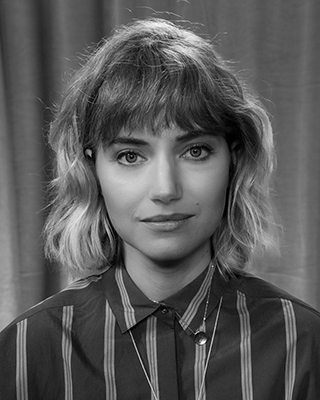
Despite roles as a teen in “V for Vendetta” and “28 Weeks Later,” London-born Imogen Poots didn’t consider herself a proper actor until her early 20s. Now with dozens of roles in film and television under her belt, Poots has hit her stride, appearing in recent films “Vivarium” and “Castle in the Ground” in the last year alone. Next, she’ll play Joy Hanks opposite Mark Ruffalo in the HBO limited series “I Know This Much Is True,” premiering May 10.
How did you first get your SAG-AFTRA card?
I would guess that it was a movie called “V for Vendetta.” I had a very tiny part in a flashback scene. It was a nonspeaking reactive part that took two days to film. It wasn’t anything huge in order to get that card. But I did!
What advice would you give your younger self?
If I could offer myself some advice, it would be to accept the reality of the moment and keep persevering, but not believe all the mythology we tell ourselves: If my face was like this, I’d be like that. You shouldn’t put your energy into these silly preoccupations that don’t matter. Ultimately, if you work really hard, I do think that pays off. You have to educate yourself on movies and educate yourself on plays and other actors; that gives you a great access. It’s a language between artists.
What performance should every actor see and why?
For me, it would be Gena Rowlands in “A Woman Under the Influence,” and also Emily Watson in “Breaking the Waves” and Michelle Williams in “Brokeback Mountain.” Those performances knocked me sideways when I saw them.
What is your worst audition horror story?
There was one audition where, on my way there, I somehow convinced myself that I was born to be a musical theater star. I literally decided this overnight. I’d never considered myself to be a fan of musicals, but because this audition came in, I thought, I’ve got to give it my best shot. I showed up and there was a pianist there and I burst into song and then I burst into tears because it was so terrible. The poor people casting it couldn’t hide their expressions. It was the most devastating moment. I ran out of the room. I thought people only did that in cartoons. I literally legged it out of the room and out of the studio, never to return. It was traumatic.
What was the moment you decided you wanted to be an actor?
I was finishing high school and was deliberating whether to go to drama school or university. I was in a no man’s land of where to begin. I had done a couple of jobs professionally, but I knew it wasn’t enough to say that’s what I should be doing or if I was good enough. I really started to feel like a proper actor in my early 20s. That’s probably due to being around other people who are brilliant. That sets the level: If you have that inspiration combined with just [being] totally besotted with other actors, in a way, you pull your socks up and you try to be a sponge and learn everything you can. You get to play tennis with an expert, and that’s huge.
In general terms, what needs to be in a script to pique your interest?
Good question. I suppose I know the things which I don’t like, and often those can be very reductive descriptions about a character which aren’t helpful. I’m talking mainly about female characters and I think the notion of someone simply selling a female role as ‘strong’ is quite dated. I guess you want to be taken into another world. You want the world to be set up for you, but not overly so, because you don’t want to have to be reading reams and reams of description and set-up. You just want to get a real sense of the character on the page. Unfortunately, I think a lot of actresses often have to take a paint-by-numbers approach with what’s there. Often the male lead is far more nuanced and the female character is sort of a device that you have to really flesh out. That then becomes your job as an actress. So it was really great with Vivarium to see a character going through such extraordinary experiences in such a short time. I guess that’s the beauty of sci-fi stories.
More women are getting behind the camera and there’s more space for the female gaze in cinema. Is that being reflected in the roles you’re being offered?
Undeniably, you can see that the uproar over the lack of diversity at awards shows is making its mark, and that’s awesome. And it’s great to see film-makers like Greta Gerwig and films like Portrait of a Lady on Fire doing incredibly well. That’s a really, huge moment. The ramification of a lack of support for female voices is now being felt across all industries; hopefully that continues!
You’ve mentioned your ease in working with Jesse for the third time; how was it working with young Irish actor, Senan Jennings, who played your son?
I found him just so beguiling because he was totally present. He was really up for it and genuinely was having fun. And he has a lovely mum who just wants the best for him. You can tell his family is just awesome. He was incredible to work with because he was completely engaged and that can only help you in a scene. It was a joy to work with Senan: he was just super duper!
How did you land your first agent?
I [was in] a theater group when I was a teenager called Young Blood Theatre Company. It was based at a place called Riverside Studios in Hammersmith, which is in West London. It was incredible, because there were three different age groups of kids from all different backgrounds. It was the first time, if I’m honest, that I was out of my bubble. It was a really egalitarian, astonishingly talented group of people who were encouraged. You could get up and do a sketch and you couldn’t embarrass yourself because everyone was rooting for you. We’d do theater productions and we would write and we’d do drama exercises. The man who ran it went on to have an agency called BWH, which is a boutique agency in London that represents incredible actors.
What’s the wildest thing you’ve ever done to get a role?
I recently did an audition where I put a tea towel on my head and I wore a pair of sunglasses. I will say that the director and I had already spoken a few times, so he knew what I looked like and he knew that I wasn’t completely mentally unstable. It was more like my friends and I were making an audition tape, and it had got to that point in the day where I was like, “Let’s just try this,” and it ended up being the look that made it into the tape.
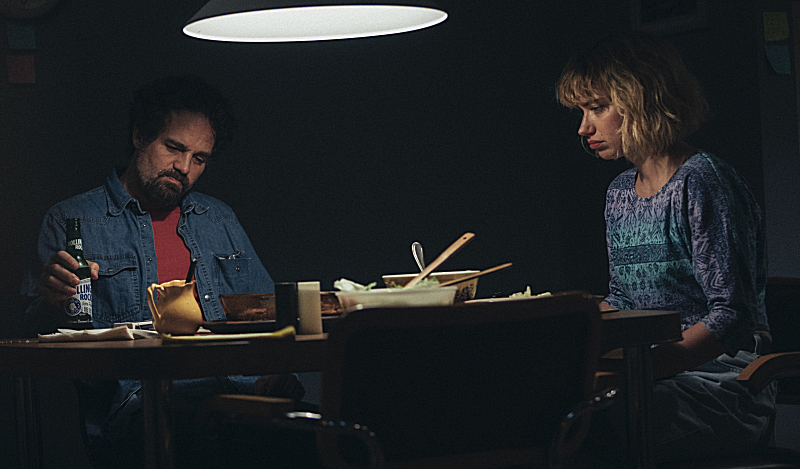
What has playing Joy in “I Know This Much Is True” added to your acting skills?
I think, with every job you do, you always come away with some new nugget of information or a lesson you learn, for better or worse. But with “I Know This Much Is True,” specifically, I was working with the best of the best. Mark Ruffalo is a true-blue actor. He is a totally committed artist and is so wonderful. Not only do you get to work with somebody that great, you also get to see how they conduct themselves and how they are with other people. He’s down all the way to earth. Working with him was the best experience ever, the best tennis match ever. And Derek Cianfrance, he directed “Blue Valentine” and helmed the show, he’s just an amazing director. I think when you get the chance to work with artists like that, they take away a layer of your skin and they give you something else to take with you. I’ll never forget my days on that set.
Do you have a history with Backstage?
Absolutely! I feel like it was always around. I think it’s an incredible magazine because it’s such an unknowable industry. To find some sort of landmark publication that people have passed through or taken advice from is essential to feeling seen in the industry. You can feel like you’re alone trying to climb out of a sand dune, but something like Backstage is a beautiful anchor for a lot of actors, and is responsible for a great percentage of increased mental health!

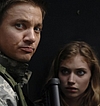





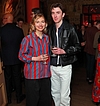
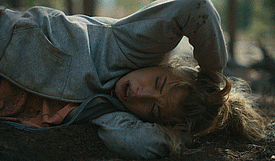





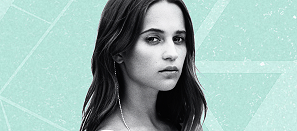






Recent Comments